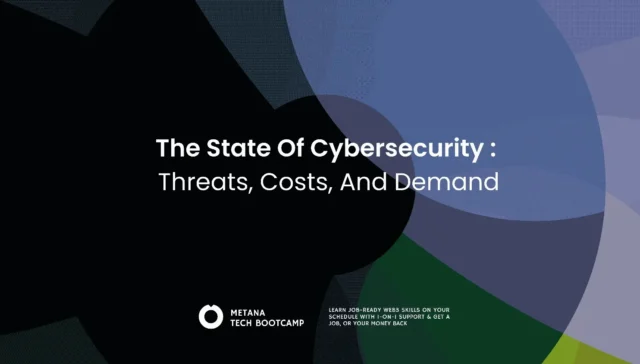TL;DR
A Solidity IDE is an essential tool for writing, testing, and deploying smart contracts efficiently. Since smart contracts are immutable after deployment, using a well-equipped IDE ensures fewer errors, better security, and a smoother development workflow.
Top Solidity IDEs & Their Best Use Cases
- Remix IDE – Best for beginners and quick smart contract testing (browser-based, no installation required).
- VS Code + Solidity Extensions – Best for professional developers needing customization, debugging, and version control.
- Truffle Suite – Ideal for large-scale dApp development with automated testing and Ganache integration.
- Hardhat – The best choice for advanced debugging, testing, and performance optimization.
- IntelliJ IDEA + Solidity Plugin – Great for JetBrains users who prefer structured development.
What is an Integrated Developer Environment (IDE)?
Think of a Solidity IDE as your all-in-one workspace for crafting, testing, and deploying smart contracts. It’s like having a Swiss Army knife tailored for blockchain developers, combining code editing, debugging tools, and local testing environments to make your life easier.
Why Bother with a Solidity IDE?
Once you deploy a smart contract, it’s set in stone—you can’t tweak it afterward. That’s why using a solid IDE is crucial; it helps catch mistakes early, boosts security, and streamlines the whole development process.
A good Solidity IDE offers:
- Deployment Support: Makes interacting with Ethereum and other blockchains a breeze.
- Built-in Compiler: Turns your Solidity code into Ethereum-friendly bytecode.
- Debugging Tools: Helps you spot and fix issues before going live.
With the right IDE, you can build and deploy smart contracts faster, with fewer headaches.

Best Solidity IDEs for Developers
Remix IDE – The Beginner’s Best Friend
Remix IDE is a browser-based tool designed for quick Solidity contract writing and testing. No setup required—just open your browser and start coding!
| Feature | Details |
| Built-in Compiler | Supports multiple Solidity versions |
| Debugger & Static Analysis | Detects security vulnerabilities early |
| Plugin Marketplace | Extend functionality with tools for testing, security, and gas estimation |
| Web3 Integration | Seamless deployment with MetaMask |
Why Choose Remix?
- No installation required—just open and code!
- Great for learning and quick testing.
- Direct deployment from the browser.

VS Code with Solidity Extensions – A Professional’s Powerhouse
VS Code, enhanced with Solidity plugins, offers a robust development environment for serious Solidity developers.
| Feature | Details |
| Solidity Language Extension | Provides syntax highlighting and IntelliSense |
| Advanced Debugging | Works with Hardhat and Truffle |
| Git & Version Control | Ideal for team collaboration |
| Multi-Language Support | Works with JavaScript, Python, TypeScript, etc. |
Why Choose VS Code?
- Highly customizable with thousands of extensions.
- Seamless integration with Hardhat, Truffle, and Ganache.
- Ideal for large Solidity projects.

Truffle Suite – Built for Large-Scale dApps
Truffle is more than an IDE—it’s a full-fledged Solidity development framework.
| Feature | Details |
| Automated Contract Testing | Uses Mocha and Chai for robust testing |
| Truffle Console | Direct interaction with smart contracts |
| Ganache Integration | Simplifies local blockchain testing |
Why Choose Truffle?
- End-to-end Solidity development framework.
- Perfect for full-stack dApp development.
- Supports OpenZeppelin for secure contract templates.

Hardhat – The Debugging King
Hardhat is known for its advanced debugging capabilities, making it a go-to tool for Solidity developers.
| Feature | Details |
| Hardhat Network | Local Ethereum blockchain for testing |
| Console.log for Solidity | Simplifies debugging |
| Highly Customizable | Supports a variety of plugins |
Why Choose Hardhat?
- Best debugging experience for Solidity.
- Faster contract execution than Truffle.
- Ideal for automated testing and CI/CD workflows.

IntelliJ IDEA with Solidity Plugin – Best for JetBrains Users
IntelliJ IDEA offers a structured Solidity development environment with an added plugin.
| Feature | Details |
| Syntax Highlighting & Code Navigation | Simplifies code reading and writing |
| Ethereum Network Integration | Connects with blockchain networks |
Why Choose IntelliJ IDEA?
- Great for developers using JetBrains tools.
- Strong debugging and error detection.
Conclusion: Which Solidity IDE Should You Choose
Your choice of Solidity IDE depends on your experience level and project complexity:
- For beginners → Remix IDE is the easiest option.
- For professionals → VS Code + Solidity plugins offer more flexibility.
- For large-scale dApps → Truffle provides structured workflows.
- For debugging & testing → Hardhat is the best.
Using the right Solidity IDE can streamline development, reduce errors, and improve efficiency.

FAQs
What is the best IDE for Solidity development?
- Some of the top Solidity IDEs include Remix, Hardhat, Foundry, and VS Code with Solidity extensions for efficient smart contract development.
Which Solidity plugins improve coding efficiency?
- Useful plugins include Solidity Visual Developer, Hardhat Toolbox, OpenZeppelin Contracts, and Ethereum Remix plugins for enhanced debugging and testing.
Is Remix IDE good for professional Solidity development?
- Yes, Remix IDE is beginner-friendly and powerful, featuring an in-browser compiler, debugger, and plugin system, making it a great choice for Solidity developers.
How does Hardhat compare to Remix for Solidity?
- Hardhat offers more flexibility, automation, and advanced debugging, making it ideal for professional projects, while Remix is better suited for quick prototyping.
Can I use VS Code for Solidity development?
- Yes, with extensions like Solidity Language Support and Hardhat plugins, VS Code provides a robust development environment for smart contract coding.







